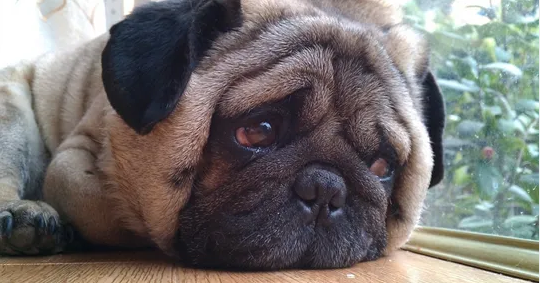We all knoe that some people suffer from rhinitis. However, except for people, dogs also have the trouble with rhinitis. If you find that your dog’s nose has snot, it means that your dog has rhinitis, and you need to treat it as soon as possible.
Before treatment, you should know the reasons why some dogs suffer from rhinitis.
Dog rhinitis is mostly caused by cold weather and irritation of the nasal mucosa, resulting in congestion, exudation, and even bacteria remaining in the nasal cavity, which then develop and multiply, resulting in mucosal inflammation. For example, inhaling ammonia and chlorine gas, smoking, dust, pollen, insects, etc. directly stimulate the nasal mucosa, which will cause inflammation.
There is also a strong relationship between dog rhinitis and air quality. In autumn and winter, there are many pollutants in the air. You’d better not to take your dogs out in foggy days. The dirty air can easily cause respiratory diseases and rhinitis in dogs.
So, how to treat your dog’s rhinitis? Here are some tips for you.
1.For mild acute rhinitis :
You need to stop training your dog and put it in a warm place for taking a rest. Usually mild acute rhinitis can be cured without taking medicine.
2.For severe rhinitis,:
You can choose the following medicines to rinse your dog’s nasal cavity: 1% saline, 2-3% boric acid solution, 1% sodium bicarbonate solution, 0.1% potassium permanganate solution, etc. Then, you can lower your dog’s head. After flushing, the anti-inflammatory agent can be dripped into the nostrils. To promote vasoconstriction and reduce sensitivity, 0.1% epinephrine or phenyl salicylate (Saro) paraffin oil (1:10) can be used to instill in the nostrils, and nasal drops can also be used.
Post time: Sep-16-2022

